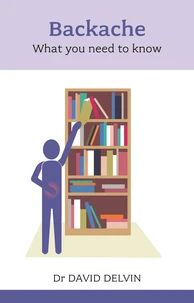A certain amount of worry and stress can be energising. They may act as a natural warning system when something is wrong, and can help people meet deadlines and complete tasks. High levels of both are however counter-productive, and all too common. Generalised Anxiety Disorder (GAD) is believed to affect some two million people in the UK, while the World Health Organisation estimates that half of all cases go undiagnosed.
These figures put anxiety only second to depression as a mental health problem. Topics covered in this book include: * What is 'normal' worry and when is it useful - e.g., sitting an exam, completing a work assignment * signs and symptoms of excessive worry and stress * tackling worry and stress - analysing the problem, accepting uncertainty * developing problem-solving skills, including prioritising and time management * the value of exercise (helps release serotonin) * diet, e.g.
eliminating sugar, caffeine and alcohol * relaxation and breathing * when worry gets out of hand - what to do if you need help * treatment - cognitive behavioural therapy, medication * support groups.
A certain amount of worry and stress can be energising. They may act as a natural warning system when something is wrong, and can help people meet deadlines and complete tasks. High levels of both are however counter-productive, and all too common. Generalised Anxiety Disorder (GAD) is believed to affect some two million people in the UK, while the World Health Organisation estimates that half of all cases go undiagnosed.
These figures put anxiety only second to depression as a mental health problem. Topics covered in this book include: * What is 'normal' worry and when is it useful - e.g., sitting an exam, completing a work assignment * signs and symptoms of excessive worry and stress * tackling worry and stress - analysing the problem, accepting uncertainty * developing problem-solving skills, including prioritising and time management * the value of exercise (helps release serotonin) * diet, e.g.
eliminating sugar, caffeine and alcohol * relaxation and breathing * when worry gets out of hand - what to do if you need help * treatment - cognitive behavioural therapy, medication * support groups.

 , qui est-ce ?
, qui est-ce ?